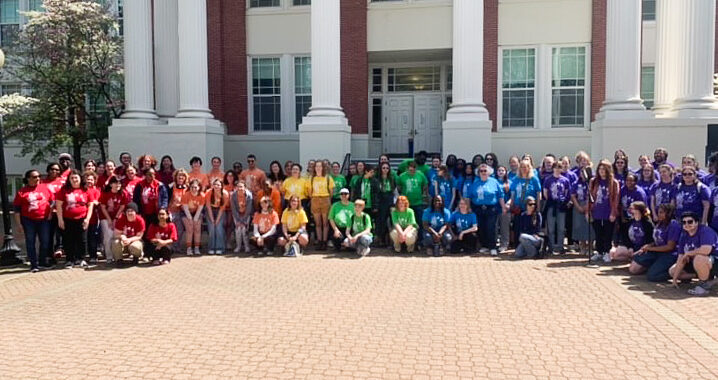SGA Re-evaluates Facebook and Video Campaigning in Elections
3 min read
On Nov. 18, members of Student Senate plan to introduce a series of reforms that they hope will bring stability to future campus elections and may change the way Facebook and videos are used.
The members of the Constitutional Order Committee want to amend the SGA Constitution. The committee hopes to address some of the issues that plagued SGA elections last year, according to Constitutional Order Committee Chairman Paul Dolan, a senior.
“Our constitution, in its current state, is not exactly ideal,” Dolan said. “The whole point of our committee is to make the constitution more concise and at the same time more encompassing.”
Dolan also addressed his personal involvement in last year’s election for Honor Council President, and how his committee’s changes will help make future elections less troublesome.
Dolan ran against Senator James Martin and Sarah Payne, the eventual winner of the Honor Council Presidency in a second election after the first was contested.
“Had there been a second contestation, there may be no Honor Council president this year,” Dolan said. “We have to work with them [Election Rules and Procedures Committee] to make their job as easy as possible.”
In their list of proposed amendments, the Constitutional Order Committee addresses such issues as campaign videos, Facebook events and club endorsements.
Dolan’s committee will propose that campaign videos be restricted in length and number, and that the “message all” feature for facebook groups and events be restricted.
“We don’t want to be soliciting people that haven’t consented to solicitation already,” Dolan said. “Everyone should be involved [in elections], but we don’t want to be in people’s faces about it.”
However, the committee will propose that content of campaign videos and the creation of Facebook groups for the purposes of campaigning remain unrestricted. Dolan also stressed that that campus clubs will be encouraged to endorse candidates during UMW’s election season.
The committee’s amendment recommendations will also address ambiguities in the Ethics and Conduct Committee (ECC) authority.
These will include specifying the Election and Conduct Committee as the sole body responsible for removing student senators. Dolan will also put forward a change to Constitutional sections explicitly defining the obligations of senators. Dolan hopes to include a citation of the Senate Code of Ethics.
“This is being done to both avoid redundancy,” Dolan said in an e-mail, “and to solidify that the Ethics and Conduct Committee is the sole body to define the duties and responsibilities of student senators.”
These proposals have earned Dolan and his committee support as well as criticism.
SGA President Sam Miller expressed confidence in the changes.
“I support the effort,” Miller said. “I think its very important so that elections run smoothly.”
Senator James Martin, who ran against Dolan in last year’s Honor Council election, was wary of the Constitutional Order Committee’s proposals.
“ERP’s role is in no way complicated by online videos and Facebook,” Martin said. “Why on earth would you want a constitution that micromanages things like the number of videos someone can put on Facebook? Why would you want to limit that in any way?”
Martin went on to affirm that the real problem facing SGA was the lack of connection with the student body, a problem he doesn’t feel will be addressed with the proposals.
“The truth is we need more ideas and outreach to students in our elections, not less,” he said. “Students have no idea how it all works, and that’s because we don’t have enough outreach, so curtailing what we already do isn’t a good idea.”
Despite the criticism, Dolan was adamant that the proposals the committee is going to introduce are necessary.
“It’s our job to look at the constitution to foresee any possibly problems, and amend them,” Dolan said. “I think this past election has highlighted how our processes could be more efficient and the regulations guarding elections could be more specific.”











